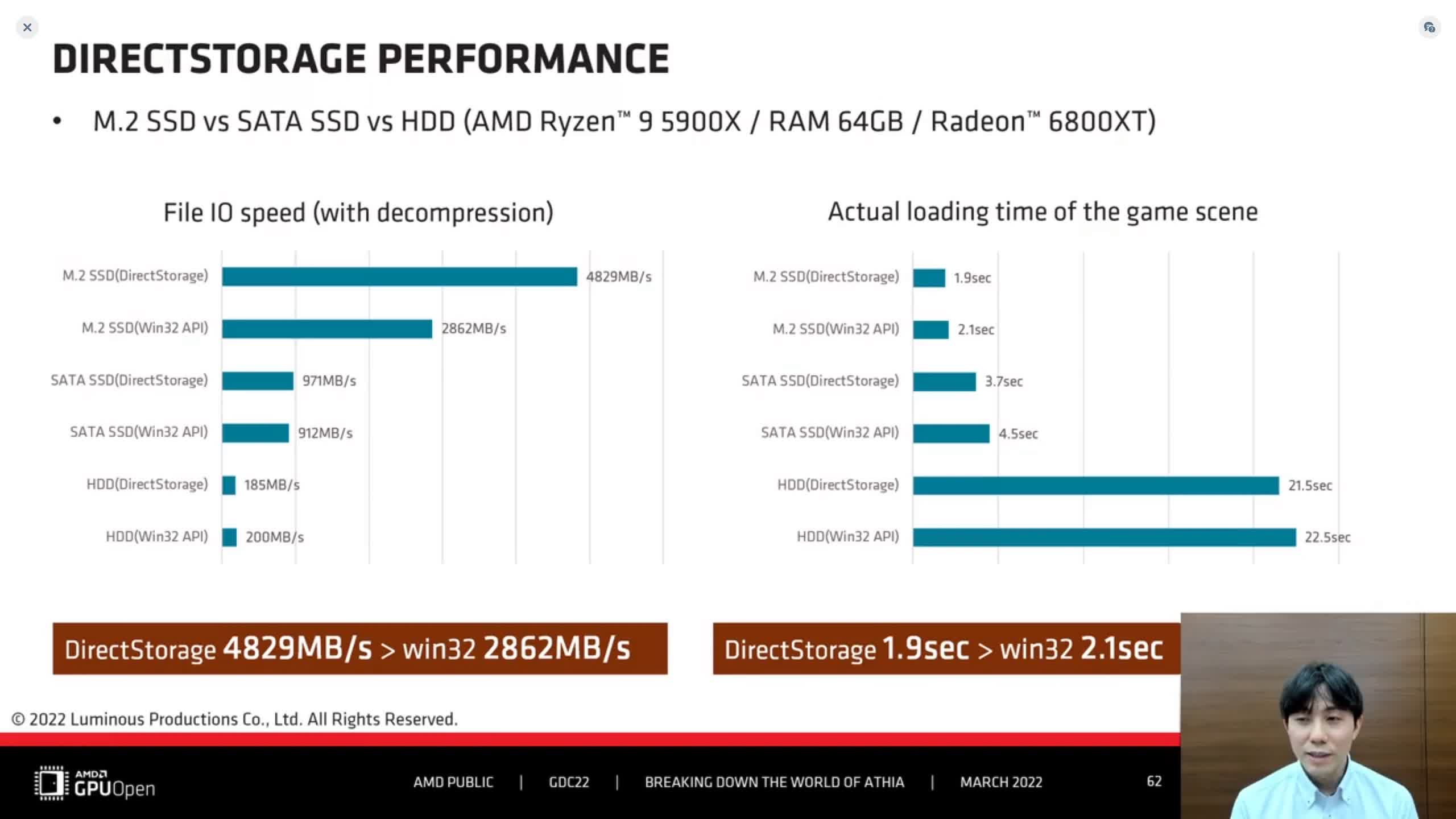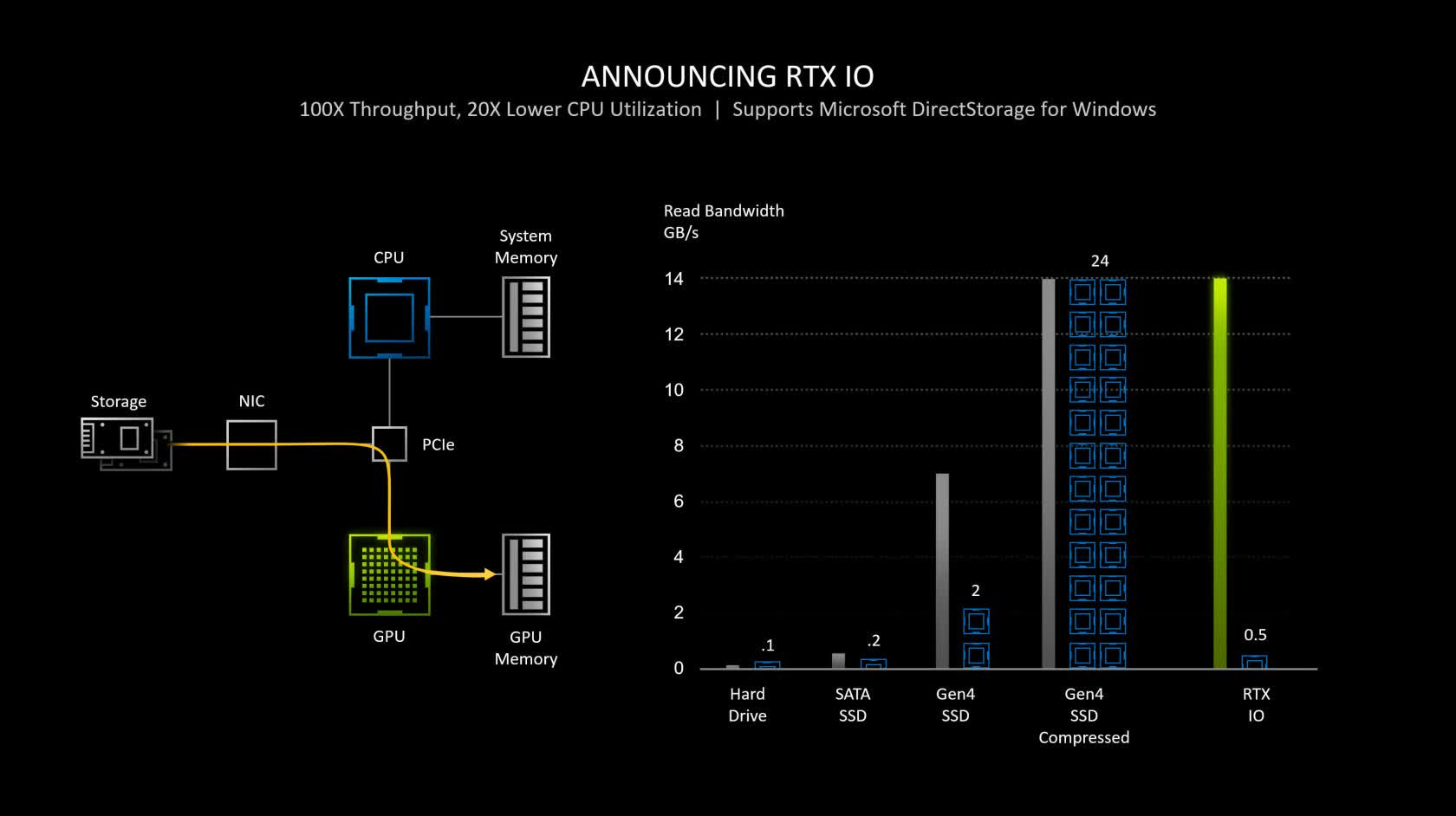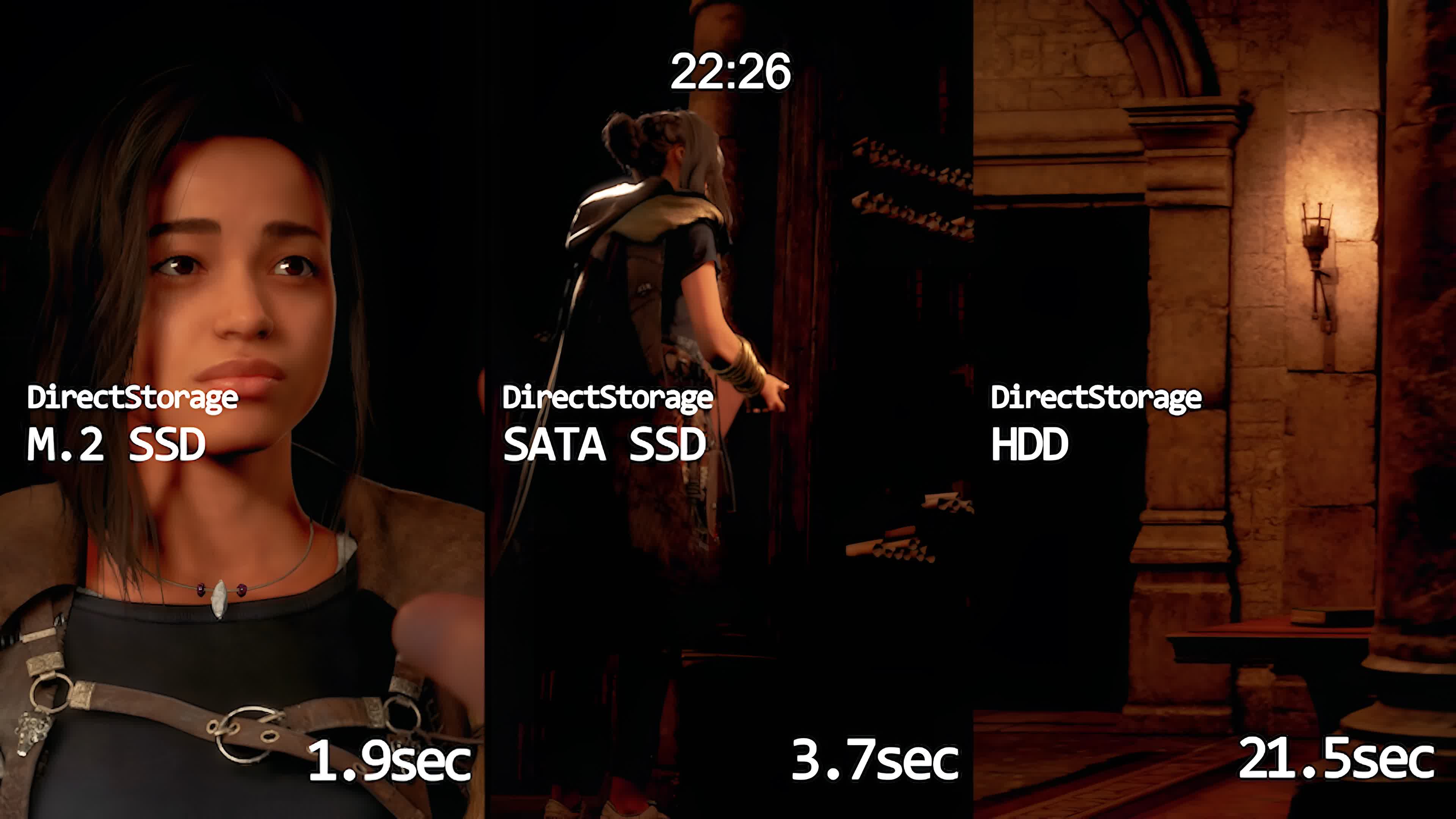Something to look forward to: PC games will soon be able to take advantage of DirectStorage for faster loading times and more detailed worlds, starting with titles like Forspoken. It will take time before developers will be able to tap into the full potential of the new technology, but important steps are already being made in offloading tasks from the CPU and allowing NVMe drives to shine brighter than their SATA siblings.
Earlier this month, Microsoft released its much-awaited DirectStorage API to PC game developers. The Redmond giant says the technology --- which was first implemented for the Xbox Series X and the Xbox Series S consoles --- will soon bring the same benefits to PCs equipped with fast solid-state storage.
Specifically, DirectStorage will take advantage of the great internal parallelism of modern storage devices to enable lightning-fast loading times, seamless in-game transitions, more expansive and detailed worlds, and even features like Quick Resume. In other words, we should see fewer texture pop-ins, shorter interruptions when navigating game worlds, and more lifelike graphics in future games.
GDC 2022 is still in flux, and courtesy of Luminous Productions we now have an idea on what to expect from DirectStorage on PC. According to Teppei Ono, who is Luminous Productions' technical director, Forspoken will be one of the first games that will take advantage of the new technology. Ono claims that some scenes in the new game will load in just one second on systems equipped with NVMe SSDs that are capable of delivering read speeds of over 5,000 megabytes per second.

It should be noted that during a showcase of the upcoming game, none of the scenes actually loaded in one second, with loading times hovering around two seconds for M.2 SSDs. Furthermore, it looks like SATA SSDs don't see a significant improvement in loading times using DirectStorage when compared to the traditional Win32 API. Hard disk drives also don't see much improvement so far, but that could change in the future.
Ono says this is only the first step, and as such the improvements seen in Forspoken are actually modest relative to what's possible with DirectStorage. The reason is that Luminous Productions is only removing one of the bottlenecks, with more work to be done in the future around non-I/O CPU bottlenecks.

Microsoft is also working on improving GPU decompression for asset streaming, and that will involve a number of storage stack optimizations on Windows 11. The company will also bring some benefits of DirectStorage to Windows 10 users, but only through refinements to the existing Win32 API. This means that gamers who want to see the full benefits of DirectStorage will have to upgrade to Microsoft's latest operating system.
Ono also touched on other technologies used in Forspoken, such as variable shading and AMD's FidelityFX Super Resolution 2.0. The latter is a temporal upscaling solution that's also coming to Nvidia cards and Xbox consoles, so it'll be interesting to see how it compares to Nvidia's DLSS and Intel's upcoming XeSS.
Forspoken will launch on October 11 for PC and PlayStation 5, and is currently available to pre-order.
